Keywords: Football
There are more than 200 results, only the first 200 are displayed here.
-
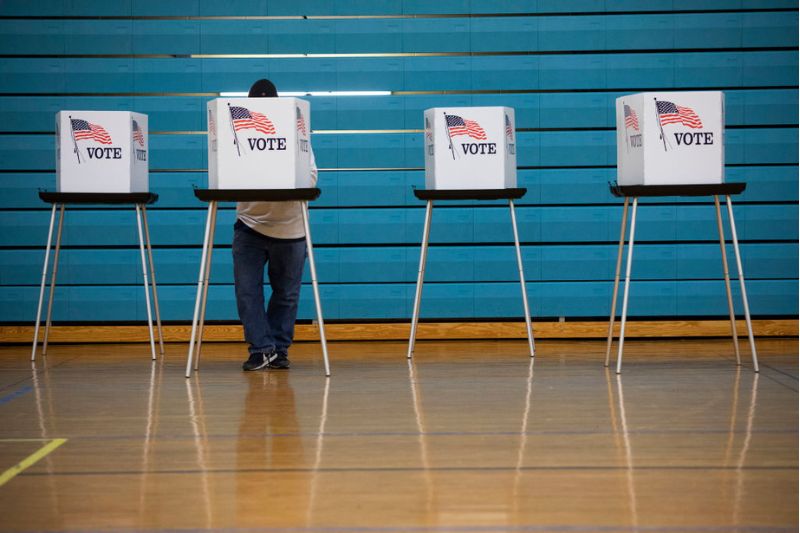
INTERNATIONAL
- Jim McDermott
- 15 November 2022
5 Comments
In recent weeks it had become a foregone conclusion that the Democrats were going to post big losses in the midterms; it’s just the way American politics seems to work. The party in power loses seats halfway through a term. What are we to make of the fact that that didn’t happen, or that we didn’t see anything the protests and violence that ensued after the 2020 election?
READ MORE 
-
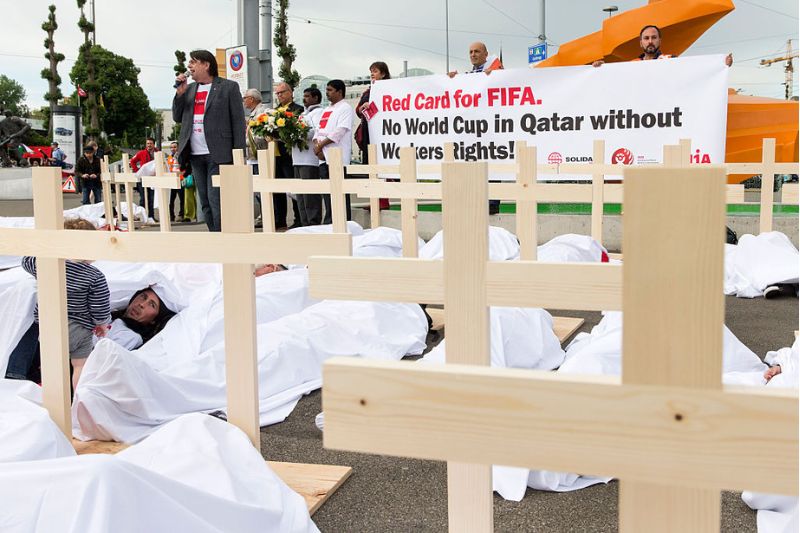
INTERNATIONAL
- Binoy Kampmark
- 25 October 2022
2 Comments
With the likes of David Beckham and Tim Cahill openly supporting the FIFA Men's World Cup in Qatar next month, what of those troubled sporting figures wishing to take an ethical, moral stand against a tournament’s organisers? To that end, a new, disingenuous form of protest has emerged, one of virtuous self-promotion that eschews substantive effect.
READ MORE 
-

AUSTRALIA
- Andrew Hamilton
- 20 October 2022
8 Comments
The one thing lacking in much of the debate about the travails of the Essendon Football Club and the brief tenure of its CEO was a proper respect. That lack of respect may merit reflection. Respect begins with persons, not with principles and opinions.
READ MORE 
-

RELIGION
- John Warhurst
- 13 October 2022
13 Comments
Freedom of religion, a matter of national interest still to be resolved successfully in the Federal Parliament, has yet again become a focus for the nation’s football codes. The Essendon controversy has demonstrated how it is issues with a religious-cultural component, not economic issues, which most polarize our society and are the most difficult for politics to resolve harmoniously.
READ MORE 
-

AUSTRALIA
- David Halliday
- 10 October 2022
Last week, in a pluralistic and diverse, multi-ethnic, multi-faith society, a person was considered ill-fitting for employment, not because of their track record, but because of their outward association with a mainstream religion.
READ MORE 
-
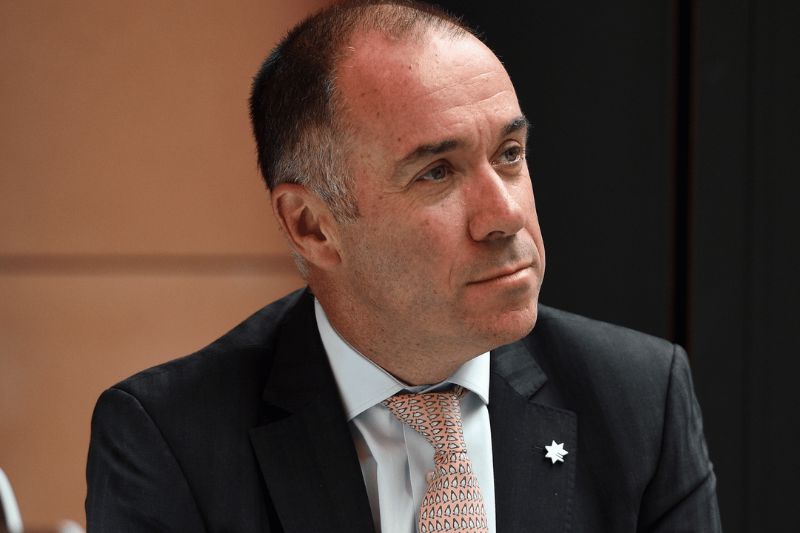
AUSTRALIA
- Chris Middleton
- 10 October 2022
18 Comments
It is highly doubtful that the Essendon Football Club appreciated the reaction that would occur when it presented its new CEO, Andrew Thorburn, with the option of giving up his role as a lay leader in the City on a Hill Anglican Church or resigning from his role with the Club. Even if many were uneasy about how the issue was caught up in the culture wars, it caused widespread concerns amongst people of faith.
READ MORE 
-

ARTS AND CULTURE
- Andrew Hamilton
- 03 October 2022
In the last few weeks, we have been drowned, smothered or mired in words that have striven for solemnity. Such occasions as the death of Queen Elizabeth II and the various Grand Finals are held to transcend the everyday and so to demand elegiac or epic words. It is easy to laugh at the manifest failures to reach those heights, whether by Poets Laureate who should have known better, or by excitable journalists. There is, however, something endearingly human in the attempt.
READ MORE 
-
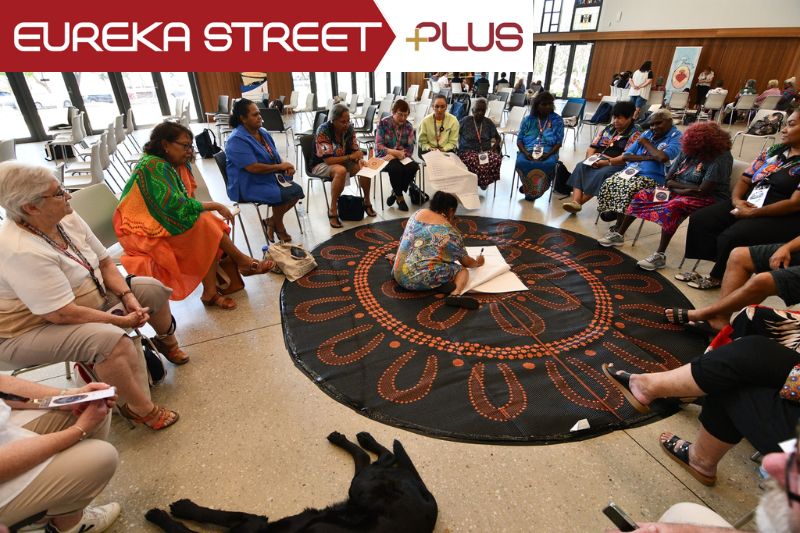
AUSTRALIA
- Michael McVeigh
- 30 September 2022
Too often our society’s approach, and our Church’s approach, to First Nations people is to judge, to destroy, and to impose. But there’s a different logic that sees any encounter between cultures as a gift. That logic seeks understanding rather than offering judgement; it looks for mutual growth rather than destruction; and it gives each person autonomy in choosing their own path forward.
READ MORE 
-

ARTS AND CULTURE
- David Halliday
- 05 September 2022
1 Comment
There’s a modern narrative around fatherhood being about sacrifice and loss that deserves some scrutiny. New fathers are frequently heard vocalising hardships, grieving the loss of former pasttimes. But there’s something else there that’s harder to articulate and appreciate.
READ MORE 
-
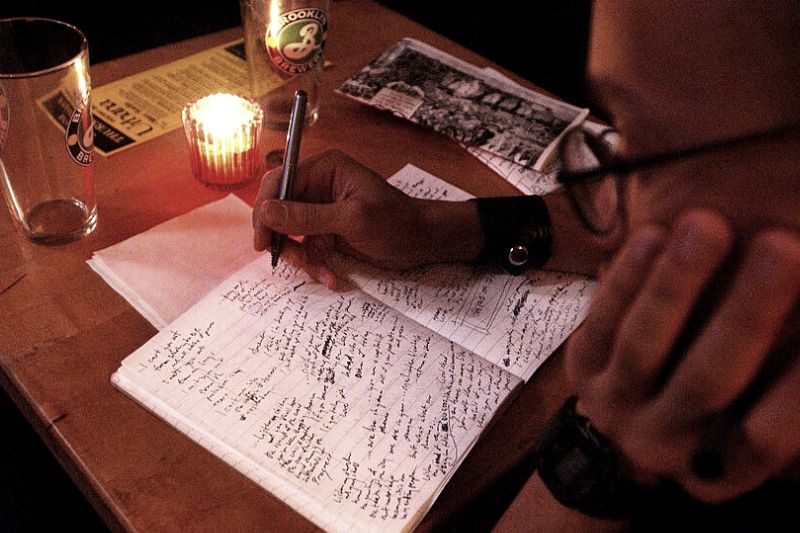
ARTS AND CULTURE
- Andrew Hamilton
- 25 August 2022
11 Comments
In most circles poetry doesn’t matter. It doesn’t put bread on the table, nor raise people to revolt nor even make news unless a grizzled footballer is outed for secretly writing poems. Even in churches poems and hymns are altered to improve their orthodoxy in matters of faith, gender, race or modernity, but rarely their poetic quality.
READ MORE 
-

INTERNATIONAL
- Michael McVeigh
- 23 August 2022
1 Comment
Is ruthlessness an essential part of sporting success? Or are players better off remembering how lucky they are, have fun, and allow good things to happen to them by treating people with compassion and playing with joy?
READ MORE 
-

ARTS AND CULTURE
- Barry Gittins
- 12 August 2022
Journalist and author Elle Hardy spent 15 months researching and writing her 2021 work Beyond Belief: How Pentecostal Christianity is Taking Over the World. She notes the estimation that by 2050, one billion people around the world (one in 10 humans) will be a Pentecostal follower of Jesus (and their pastor).
READ MORE 